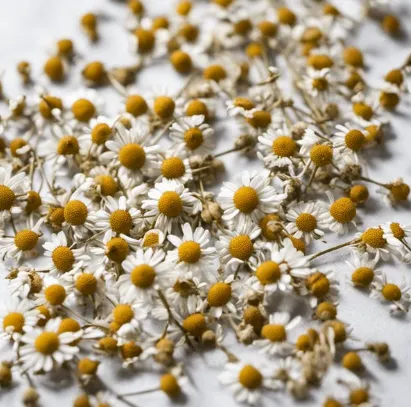
Chamomile tea, a soothing beverage derived from the chamomile plant, has been cherished for centuries for its calming properties and potential health benefits. Often hailed as a natural remedy for stress, anxiety, and sleep disorders, chamomile tea has earned a place in many households worldwide. However, while its generally safe for most people, it’s essential to be aware of potential side effects and precautions.Chamomile Tea: A Calming Cup
The Calming Cup: Benefits of Chamomile Tea
Chamomile tea has been used for centuries to promote relaxation and alleviate various health conditions. Its calming properties are attributed to compounds like apigenin, a flavonoid wtih sedative and anti-inflammatory effects.
Key Benefits of Chamomile Tea:
- Stress and Anxiety Relief: Chamomile tea can help reduce stress and anxiety by promoting relaxation and improving sleep quality.
- Improved Sleep: it’s calming effects can aid in falling asleep faster and enjoying more restful sleep.
- Digestive Health: Chamomile tea can soothe digestive issues like bloating, gas, and indigestion.
- Skin Health: Topical application of chamomile can help soothe skin irritations and inflammation.
- Menstrual Cramp Relief: Some studies suggest that chamomile tea may help alleviate menstrual cramps. Chamomile Tea: A Calming Cup
A Closer Look: Potential Side Effects of Chamomile Tea
While chamomile tea is generally safe for most people, it’s important to be aware of potential side effects, especially when consumed in large 1 quantities or for extended periods.
Common Side Effects of Chamomile Tea:Chamomile Tea: A Calming Cup
- Allergic Reactions: People with allergies to ragweed, marigold, chrysanthemums, or daisies may experience allergic reactions to chamomile tea, including skin rashes, itching, and difficulty breathing.
- Drowsiness and Sedation: Chamomile tea can cause drowsiness and sedation, especially when consumed in large amounts or before bedtime.
- Delayed Blood Clotting: Chamomile tea may interfere with blood clotting, so it’s best to avoid it if you’re taking blood-thinning medications.
- Hormonal Imbalance: Excessive consumption of chamomile tea may disrupt disrupt hormonal balance, particularly in women.
- Digestive Issues: In some cases, chamomile tea may cause digestive issues like diarrhea or constipation.
Chamomile Tea and Drug Interactions: A Cautionary TaleChamomile Tea: A Calming Cup
Chamomile tea can interact with certain medications, potentially leading to adverse effects. It’s crucial to consult with your healthcare provider before consuming chamomile chamomile tea if you’re taking any of the following medications:
- Blood Thinners: Chamomile tea may increase the risk of bleeding when combined with blood-thinning medications.
- Sedatives nad Tranquilizers: The sedative effects of chamomile tea may enhance the effects of sedatives and tranquilizers.
- Anti-Anxiety Medications: Combining chamomile tea with anti-anxiety medications may increase the risk of excessive sedation.
Who Should Avoid Chamomile Tea?
While chamomile tea is generally safe for most people, certain individuals should avoid or limit their consumption:
- Pregnant and Breastfeeding Women: Pregnant and breastfeeding women should consult with their healthcare provider before consuming chamomile tea, as limited research exists on it’s safety during these periods.
- Children: Children should avoid excessive consumption of chamomile tea, as it may interfere with their sleep patterns and cause digestive issues.
- People with Allergies: Individuals with allergies to related plants, such as ragweed, marigold, chrysanthemums, or daisies, should avoid chamomile tea to prevent allergic reactions.
Enjoying Chamomile Tea Safely: Tips and ConsiderationsChamomile Tea: A Calming Cup
To enjoy the benefits of chamomile tea safely, consider the following tips:
- Start Slowly: Begin with small amounts of chamomile tea to assess your tolerance.
- Choose High-Quality Tea: Opt for high-quality, organic chamomile tea to minimize the risk of pesticide exposure and other contaminants.
- Consult with Your Healthcare Provider: If you have any underlying health conditions or are taking medications, consult wtih your healthcare provider before consuming chamomile tea.
- Monitor Your Intake: Avoid excessive consumption of chamomile tea, as it may lead to adverse effects.
- Pay Attention to Your Body: Listen to your body and discontinue use if you experience any adverse reactions.
By understanding the potential benefits and risks of chamomile chamomile tea, you can enjoy this soothing beverage responsibly and safely. Remember to consult with your healthcare provider if you have any concerns or questions.